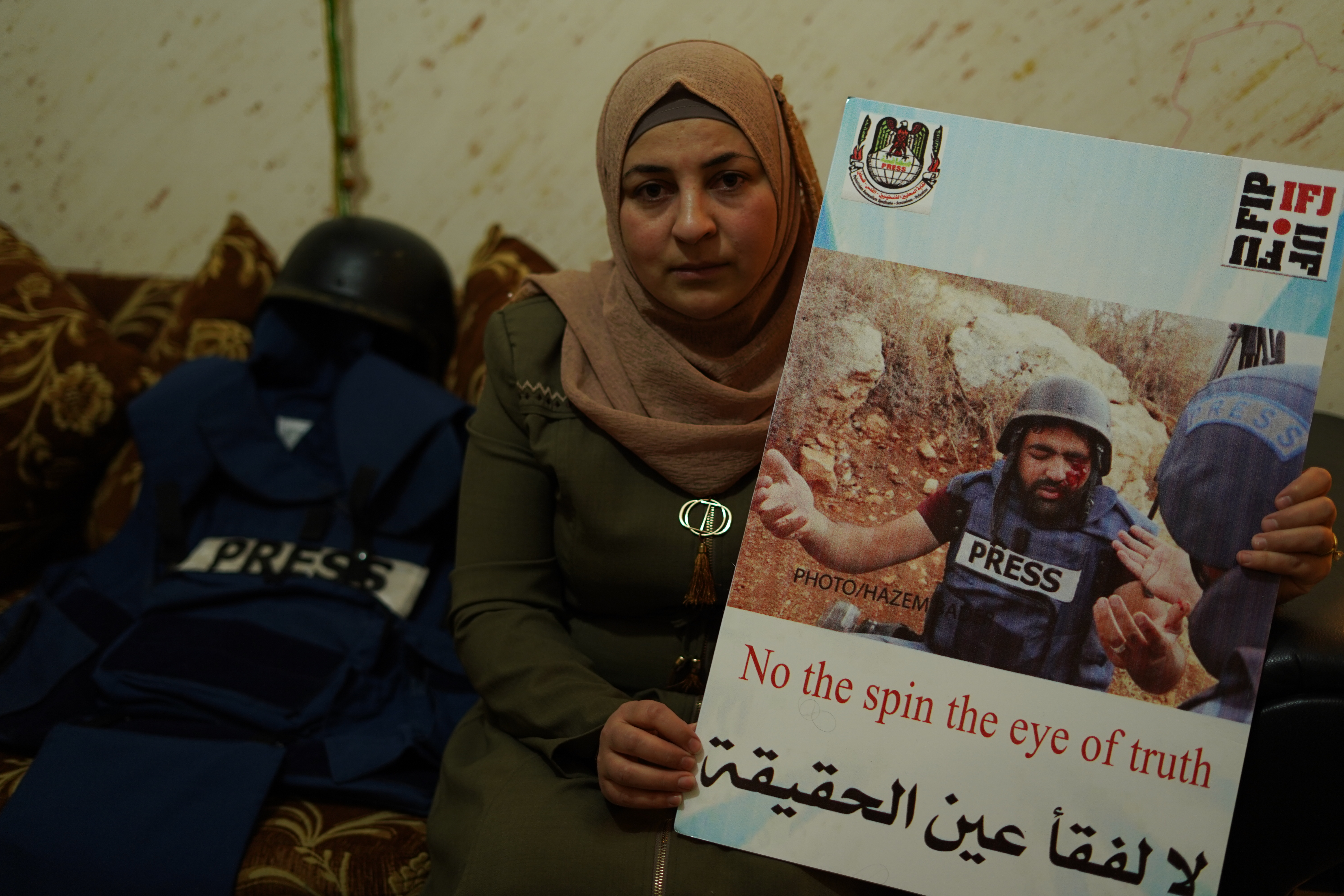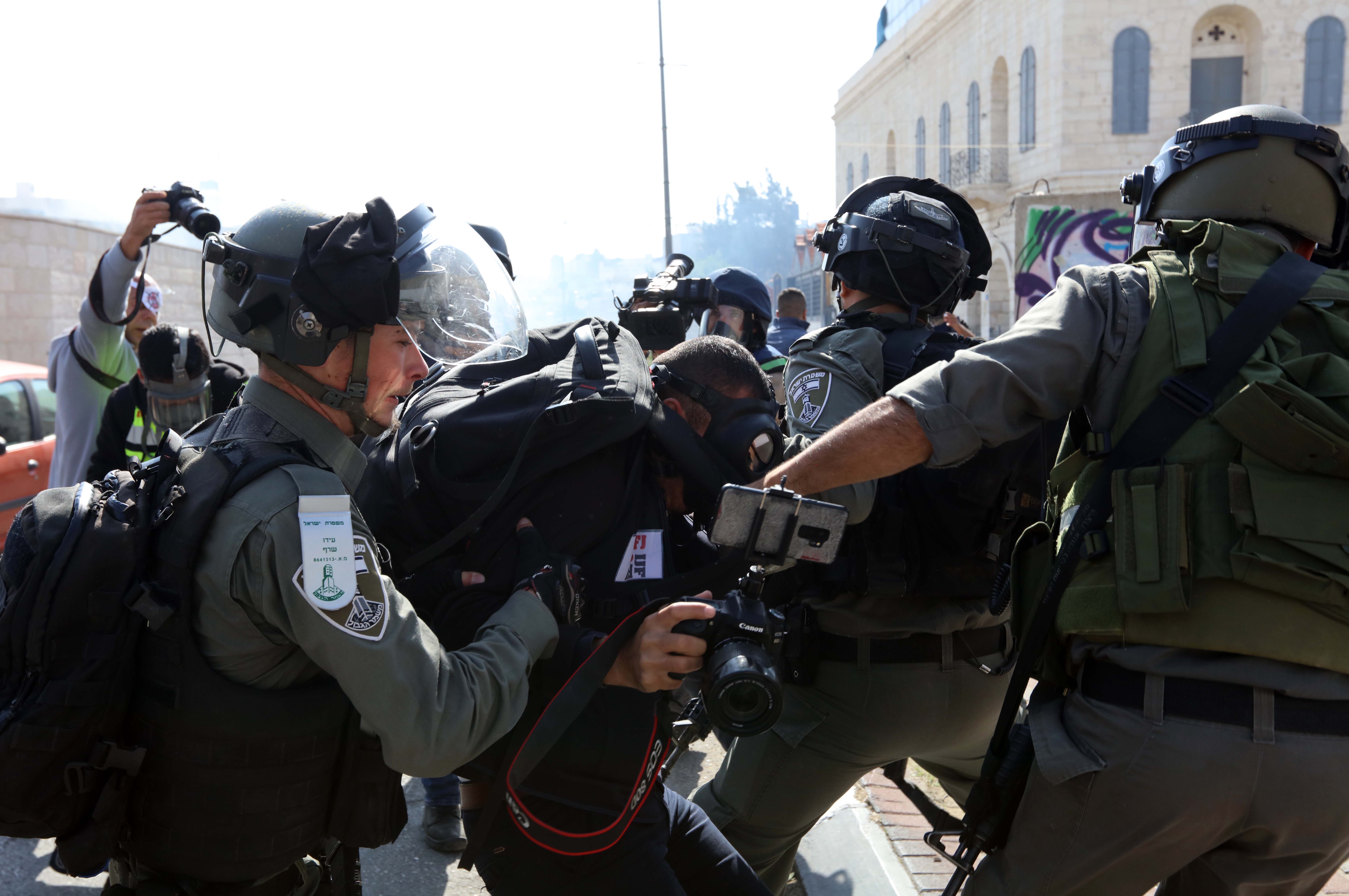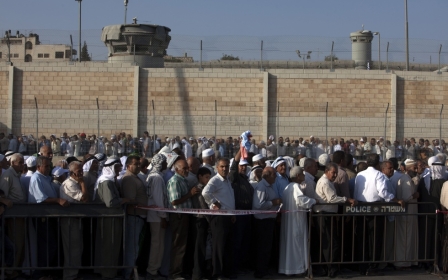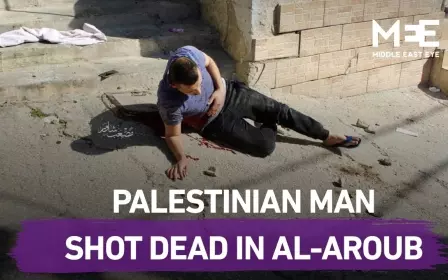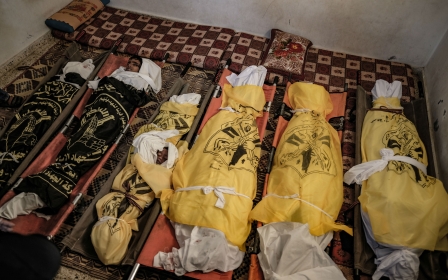'We are all Muath': Palestinian journalists show solidarity with photographer shot in the eye
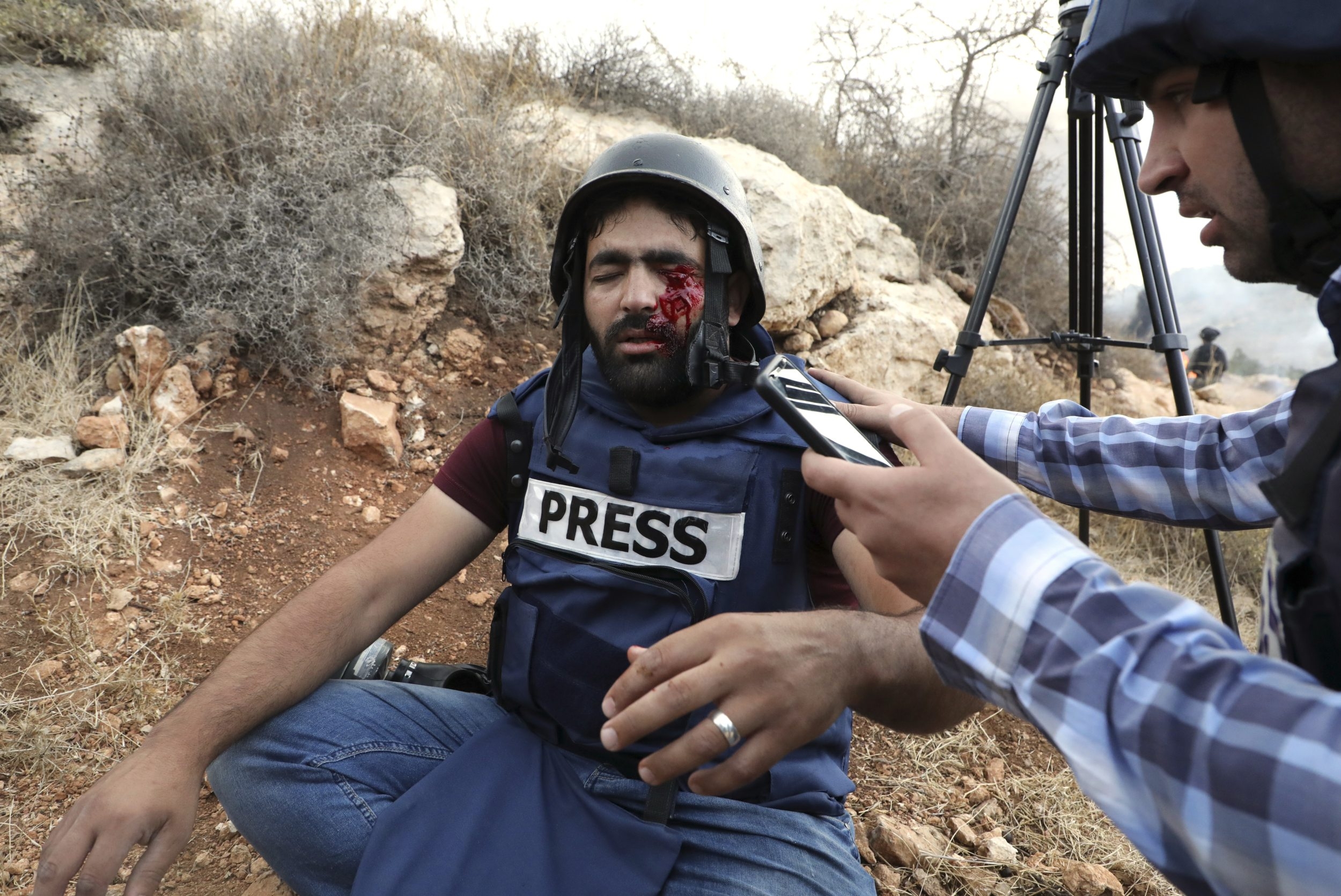
A Palestinian press photographer was blinded in one eye after being shot by Israeli border police during clashes on Friday in the Hebron area of the West Bank, prompting outrage on social media and solidarity protests in the occupied territory.
Muath Amarneh, 32, a freelance photographer from the Bethlehem-area Dheisheh refugee camp, was covering protests in the town of Surif alongside several of his colleagues when he was hit.
“Muath said he made sure to stay at a safe distance from the boys throwing stones to stay out of the line of fire,” his wife Welaa Amarneh, 29, told Middle East Eye.
Welaa, along with some of Amarneh’s colleagues, said he was targeted by an Israeli sniper, while others claimed he was hit by a bullet that ricocheted off the ground first.
Amarneh was wearing a press vest and helmet when he was shot. Israeli police claimed that Amarneh was not targeted, but that he was standing too close to “rioters”.
An injured and bloodied Amarneh was transported to the nearest hospital in Hebron, before eventually being transferred to Hadassah hospital in Jerusalem, where he has since been receiving treatment.
‘Muath’s Eye’
Photos of Amarneh with a bloodied eye, wearing his press vest and still holding his camera, went viral over the weekend on social media, prompting widespread denunciation from Palestinians across the West Bank, East Jerusalem and Gaza.
Palestinian journalists and activists from across the territories posted photos of themselves on social media with one eye covered, with the hashtag “Muath’s Eye”, in Arabic.
Protests and sit-ins were organised in Amarneh’s hometown of Bethlehem, the northern West Bank city of Tulkarem, and Gaza City.
Hundreds of journalists took part in the Bethlehem sit-in, wearing their press vests and symbolically wearing eyepatches.
“I came to the protest today in solidarity with Muath and all the other Palestinian journalists,” Hamad Taqatqa, 27, a local journalist and friend of Amarneh, told MEE.
Israeli forces violently dispersed the Bethlehem protest, heavily firing sound bombs and tear gas at journalists as they approached the permanent Israeli military base at the northern end of the city.
“We stood for less than 10 seconds in front of the military tower before they started firing sound bombs and tear gas at us like crazy,” Taqatqa told MEE, saying that soldiers began hitting and grabbing protesters in an effort to detain them.
Taqatqa was one of several journalists and activists who were detained at the scene for several hours, before being released upon intervention from Palestinian Authority (PA) officials.
“They were extremely aggressive, and hit me in the neck, back and arm,” he said, adding that soldiers tried to accuse him and others of stone throwing.
Taqatqa and others insist that no matter what, they would continue working as journalists, and will not be deterred by the actions of Israeli forces.
“His eyes are our eyes. We are all Muath,” he told MEE.
“Maybe today was his turn to be shot, but tomorrow it could be any one of us,” he continued. “But it won’t stop us. We will be on the ground everyday to send a message to the occupation that no matter what you do, we will continue to show your true face to the rest of the world.”
‘Nothing will stop him’
Three days after being shot, Amarneh still has to undergo a number of operations before he can be released from hospital.
According to his family, doctors told Amarneh that a two-centimetre long metal fragment had pierced his left eye and was lodged near his brain, making any attempt at removing it difficult.
“At first we thought it would be simple surgery, and he would be home soon, but the doctors are worried that if they take out the metal they could cause bleeding in his brain and even damage his right eye,” Welaa told MEE.
Welaa added that while she has been in touch with Amarneh constantly since his injury, all she wanted was to see her husband. But as a Palestinian resident of the occupied West Bank, Welaa is unable to enter occupied East Jerusalem, where Hadassah hospital is located, without an Israeli permit.
“I have been applying for permits to go visit him, but the Israelis keep denying my application, even though I have a letter from the hospital stating that it is a serious situation,” she said.
“Our family is extremely distraught,” she continued, telling MEE that Amarneh was the only breadwinner for his wife, two children, his widowed mother and his two sisters.
“Of course we are most worried about his health, but losing his vision will affect his work, and we worry about how our family will continue to survive,” she said.
Despite the pain and stress of the situation, Welaa says that Amarneh has remained his positive, “fun-loving self”.
“Instead of me comforting and reassuring him, it’s the other way around,” she said, breaking into a faint smile.
“He told me that no matter what, nothing will stop him from doing the work that he loves.”
Middle East Eye propose une couverture et une analyse indépendantes et incomparables du Moyen-Orient, de l’Afrique du Nord et d’autres régions du monde. Pour en savoir plus sur la reprise de ce contenu et les frais qui s’appliquent, veuillez remplir ce formulaire [en anglais]. Pour en savoir plus sur MEE, cliquez ici [en anglais].


